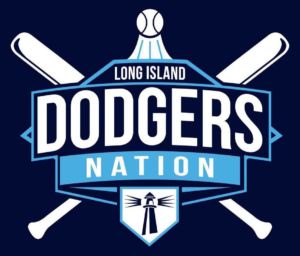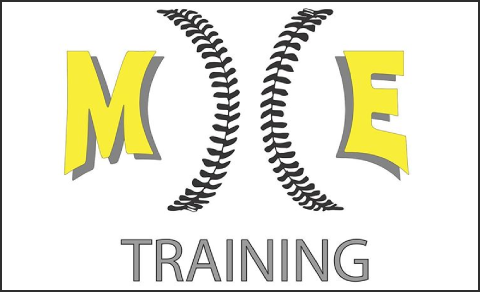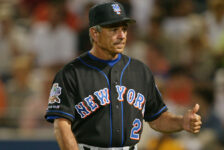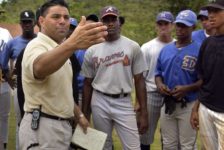Photo Credit: Demetrius Freeman/The New York Times
The week before I started high school, the Mets went on a west coast trip. They went to Arizona and pulled off a 4-game sweep to reach a high-watermark of eight games over .500 for the season. While it was a far cry from a World Series parade, it certainly felt like it for a team that began the season 0-5 and struggled to find their groove for the first 4 months of the season.
A major reason for that hot streak was the play of 22-year-old rookie David Wright.
![]()
The young third baseman wound up being named Player of the Week, which coincided with reinvigorating the team’s fan base. Wright was far from the most accomplished player on a team that featured future Hall of Famers Pedro Martinez and Mike Piazza as well as 9x All Star Carlos Beltran.
But what he represented was a bright spot for a wildly mediocre team. Him and SS Jose Reyes quickly went from the future of the team to the present. The Mets had relied on aging veterans for years leading up to that and endured three brutal seasons from 2002-2004 which resulted in fans simply losing interest in the team.

On August 31, 2005 I went to Shea Stadium with my dad to watch a Wednesday night game against the rival Philadelphia Phillies. I remember It was his gift for my 14th birthday. As is the case with every die-hard fan, all day I anxiously waited going to the game because the Mets were in the thick of the Wild Card chase, just 0.5 games behind the Phillies. We drove to the stadium and had great seats along the first base side in the box seats.
Wright, unlike Mets catcher Mike Piazza, loved to sign autographs before every game. In that era of pre-social media, it was his way to connect with the fans and thank them for his support. Once I noticed he was headed to sign autographs, I ran over in hopes of beating the crowd. I wasn’t part of the first wave of people to get closest to him, but tried my best to finagle my way closer. Although he easily could’ve signed a few and ran back into the dugout for the National Anthem, he signed as many autographs as possible – including my Mets hat. Nervously, I said ‘congrats on Player of the Week’ which he simply smiled and thanked me. I ran back to my seat and told my dad.

He wasn’t the type to get overjoyed for meeting professional ballplayers, but seeing my joy definitely thrilled him to see.
Anyway, the Mets wound up losing that game – beginning a tailspin that resulted in them finishing with 83 games and missing the playoffs.
Wright wound up finishing that season with a .306 AVG, 27 HR and 102 RBI. He compiled a .388 OBP and .523 SLG – an incredibly impressive season for a 22-year-old. He became the biggest young star in New York – along with Robinson Cano – and one of the brightest young stars in the game.
It was the beginning of a stretch of four seasons in which he batted .311, averaged 29 HR and drove in 112 runs. He got on base at a .394 clip and slugged a healthy .534. Simply put, he was among the best players in the game and did it on the national spotlight.

But just like the day I got his autograph, he did everything right but the team did not come through when it mattered most.
That period of years, 2005-2008 was characterized by heartbreak and disappointment more than resounding success for the New York Mets. They won 97 games and swept the NLDS in 2006, but had their hearts broken by Yadier Molina‘s 2-HR against Aaron Heilman in Game 7 of the NLCS.
The following two seasons, they were among the best teams in the National League during the regular season but collapsed in September – including losses against Florida on the last day of the season in both years. It was a colossal disappointment for a franchise plagued by demoralizing losses.

Had the Mets even just snuck into the playoffs in 2007 as opposed to blowing a 7-game lead with 17 games to go, Wright would’ve likely been named NL MVP – the first in the franchise’s history.
Even through that, Wright faced the music. He always stood at his locker and answered the questions when he didn’t want to. He never was caught in a compromising position on TMZ, never named in any grand testimony and never tested positive for PEDS.
He was the perfect embodiment of a franchise player.
The Mets made that official by naming him captain prior to the 2013, after he signed an 7-year $122 million contract.
Just a few short months later, Wright showed what he could do on the global stage, as he notched a walk-off hit in the World Baseball Classic against Puerto Rico and hit a grand slam against Italy. While USA didn’t capture the Gold Medal, he was nicknamed Captain America by baseball fans.
Wright put together a strong season in 2013, finishing with a batting average of .307 with a .390 OBP but his season was cut short due to injury.
Unfortunately, that would be the theme for the remainder of David’s career. During his 20s, he was averaging 149 games played per season but in his 30s, he did not even approach that. The most games he played in was 134 during 2014 in which he hit just 8 HR.
The next highlight of David’s career was 2015. At this point, he was not nearly the player he was during his younger days and his play in the field had deteriorated. The Mets, somehow, were able to ride a second half surge to the NL East division title – thanks to the best pitching staff in the league and the acquisition of Yoenis Cespedes.
Playing in the first World Series of his career, he smoked a HR in Game 3 against Yordano Ventura in one of the most exhilarating moments in Mets history. The game was the lone bright spot during the series against Kansas City, which featured three soul crushing losses out of the four games. Outside of the HR, Wright was awful in the World Series, going just 5-for-25 including being involved in the play that allowed the Royals to tie the game in the 9th inning.
The next couple years were plagued by his debilitating spinal stenosis which was essentially the final nail in the coffin for his career. He played in just 37 games in 2016 and none in 2017. He was rarely doing interviews – which meant one thing; he was not doing well.
Out of nowhere, towards the end of the 2018 season the Mets announced a press conference and everyone who follows the Mets knows those are rarely for positive news. In this case, I guess you could say it was partially good news. They announced he would be activated for the final home stand of the season against the Miami Marlins.
He took the podium and was teary eyed as he explained the difficulty of attempting to return to the game he loved, he described the daily struggle of just getting out of bed sometimes and that being with his daughter is his priority. It was a painful reminder how precious life is and put into perspective the strain that Major League Baseball can put on someone’s body.
David had sacrificed so much – but it was clear this was the end.
Tickets flew off the market like hotcakes and suddenly people wanted to be at Citi Field for a game in September.
I was in attendance and I just remember being overcome with sadness knowing I had watched his entire career from start to finish. I knew it was the end but we were hoping for one more magical moment. The Mets even batted him third to give him an opportunity to drive in a run.
And he had a chance. Jose Reyes – yes, that Reyes – doubled to lead off the game and Jeff McNeil bunted him to third. With the crowd on their feet, Wright had a chance to give them one final exciting moment. It was not to be, however, as he drew a walk on a 3-2 count. He came up once more in the bottom of the third, but popped out to third base in foul territory.
That was it.
The Mets were deeply saddened to know he would go out on an anti-climatic moment, but in many ways it was pretty appropriate that the Mets wouldn’t let their franchise player go out on a high note, as they had failed him his entire career.
My biggest takeaway from David Wright’s career is that he had a huge impact on me. He conducted himself professionally in the fishbowl of New York. He never called out the front office, even when it was entirely warranted. Somehow, he only played in one World Series despite being on some of the best teams in franchise history.
Through it all, he was a model citizen – even when his body absolutely abandoned him. Will he go down as one of the all-time greats in baseball history? Absolutely not, his peak was too short and for that who knows if he will make it to Cooperstown.
But within the confines of Citi Field, he can do no wrong and those who followed his career, know that this man left his heart & soul on the field every single game.
Now that’s a role model.













